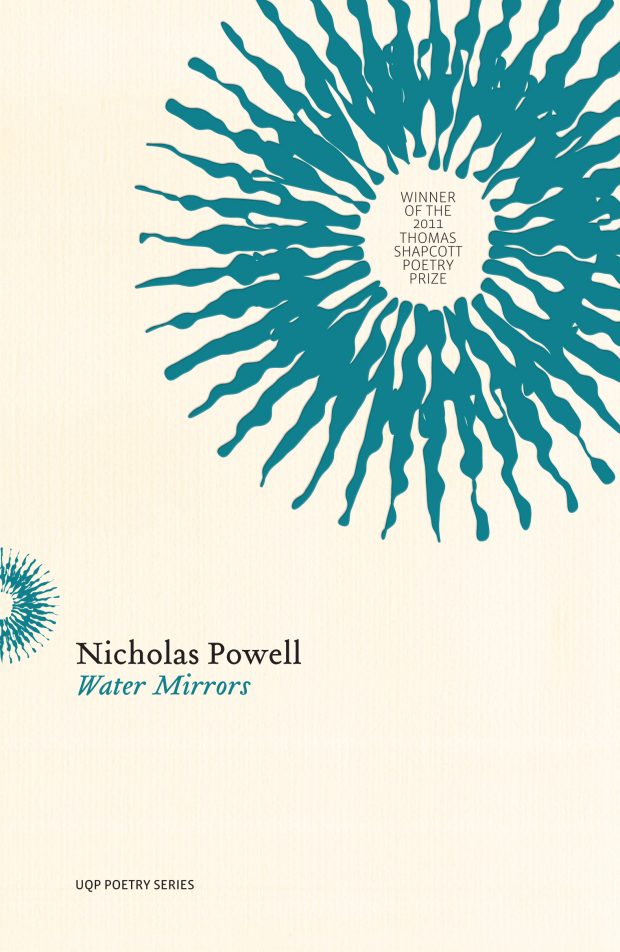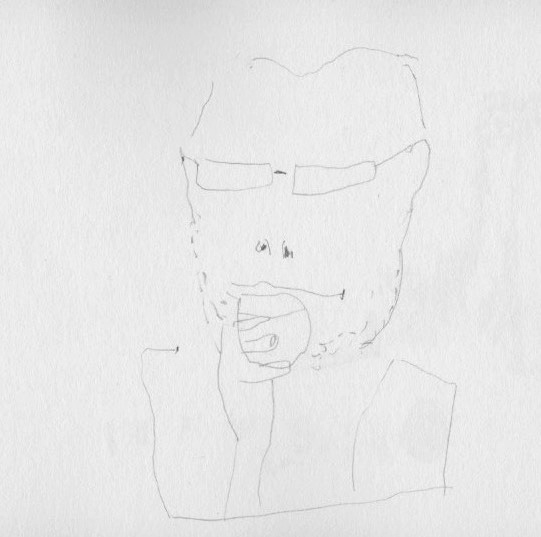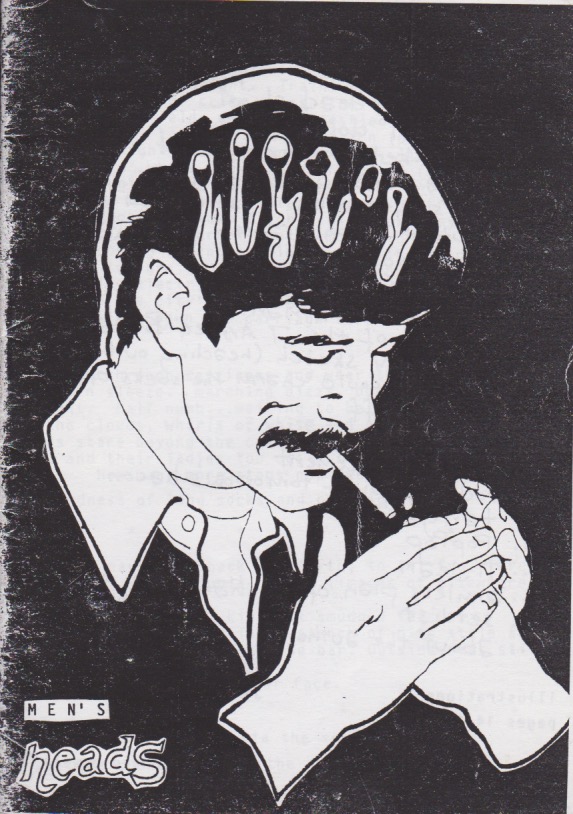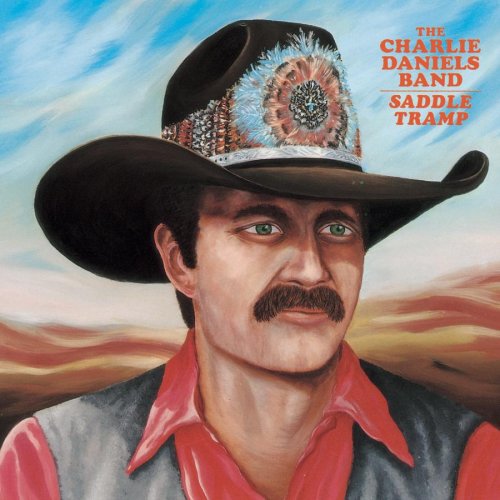Poets in Cars, An Interview with Nicholas Powell
by Luke Beesley
…turn on that dishwasher
John Ashbery, ‘Wooden Buildings’
 My old mate, poet Nick Powell, visited Melbourne last week with his family – it was his first trip back to Australia in 4 years. Nick’s partner, Laura, is Finnish and he has lived in Helsinki (with short stays in Australia) since 2008.
My old mate, poet Nick Powell, visited Melbourne last week with his family – it was his first trip back to Australia in 4 years. Nick’s partner, Laura, is Finnish and he has lived in Helsinki (with short stays in Australia) since 2008.
We both spent a large part of our childhoods in Beaudesert, a country town south-west of Brisbane but we first met in Toowong (hilly and green inner-west Brisbane) about 15 years ago – Nick moved into the same apartment building, which became the headquarters of Men’s Heads and many more of his hilarious zines. We were both listening to similar bands and going further into poetry. Nick eventually moved to Melbourne and won a Poet’s Union Fellowship for his 2007 chapbook of Fallen Myth and then the Thomas Shapcott Award for his first collection: Water Mirrors (2012).
I was recently lucky enough to peek at his current manuscript, titled In Transports.
Nick popped over to my house in Thornbury, to begin the painstaking task of picking out a small collection of records to take back to Helsinki, from the pile he’d left with me many years before (see below for the yes and no pile).
We then jumped in my car for the following interview, a rainy drive/mission out through the eastern suburbs of Melbourne. Nick talked about his new poems, the bright intrusion of the English language, touristic looking and seeing, and the lengths Finnish basketball coaches will go to to put off their opponents… It’s not quite Comedians in Cars Getting Coffee, we weren’t searching out caffeine, besides neither of us wore white sneakers…
Hutton St, Thornbury…
L: So, Nick, can you tell me what we’re doing right now?
N: Right now we’re driving out to Mitcham to pick up a… well, not a plug – a knob. For a dishwasher. We’re renting an apartment in Brunswick while we’re here, and we didn’t want the owners to know that we have lost the knob on the dishwasher. So we’ve tracked down a spare parts dealer in Mitcham and we’re driving out there to pick up a [long pause] knob.
L: Nick you’re particularly interested in philosophy so I thought I’d start this off with the question: What happened to the dishwasher knob?
N: So of course it crossed my mind that there is some kind of black hole where things are disappearing. How do these things go missing? How could we lose the knob? We’ve looked absolutely everywhere. There is no crease or crevice or little hidey-hole corner where it could have gone. I feel like on some level it has dematerialised.
L: Would you equate it to an edit?
N: An edit?
L: Yeah, I mean are you happy with the dishwasher as it is right now? I guess, clearly not, given we’re driving out to Mitcham in search of the knob…
N: Well… I guess you want a knob so that you’re able to turn to different… modalities. Or a different setting. [pause, wiper blade] I’m 36 and I still don’t really know what kind of poet I am, or what kind of poet I’m going to be. Maybe that doesn’t matter.
L: I wonder what kind of poets there are?
N: There are definitely poets who wouldn’t drive out to Mitcham to replace the knob.
L: Fire-fighter poets? Police poets?
N: They’re the poets who would just get the pliers and turn to the next setting…
L: [faux serious] There is honesty to your lyricism, really, isn’t there…
N: [without blinking an eye] Well, my next book won’t be as earnest. Will be more playful. Will be more like: Knob Off.
L: [attempting a level of seriousness] Having read your recent manuscript, [In Transports] that’s something that was noticeable – more of playfulness – where the line goes. It’s difficult to emphasise the word “lyric” when describing your earlier collection, Water Mirrors…
N: You can say lyric.
L: …it’s a broad kind of generalisation…
N: …you could even say landscape.
L: [laughing] Yea there was a little more focus, whereas In Transports jumps around a little bit, even within the poems. How would you describe the difference?
N: Well the first thing I wanted to do was I wanted to get out of the poems. I didn’t want to be in the poems.
L: You mean you wanted to get out of the headspace of poetry and get out on the basketball court?
N: No, I didn’t want to be a personage (in the poems).
L: Oh, right, right. I see.
N: So all the personages are not me.
L: To use Gerald Murnane’s favourite word.
N: Yea-yea.
L: So, was that a conscious thing?
N: Yea, that was.
L: Was it influenced by any particular reading?
N: No I just realised that I felt freer to move around.
Grange Rd, Alphington
We’re turning off Darebin Rd, now, into Grange. We talk about editing poems and Nick’s epic cheeky Joh Bjelke-Petersen poem for Cordite’s Gibberbird. Nick talks about the perils of self-editing when it comes to typing poems into the computer, and laments not having a typewriter in Finland to compose letters on. He goes into more detail about how he’s composed some recent poems in In Transports:
N: I used some aleatoric methods in parts. Not a strictly chance method; the author is still the – somewhat subjective – intermediary. My writing can have a qualified, tentative quality, and so drawing on the language of the manual – the ‘How To…’ guide, or ‘What to See’ literature – freed me to use more declarative sentences. That was refreshing…
Entering the Eastern Freeway
L: You mentioned something interesting the other day, that you’d just arrived in Australia and suddenly you’re picking up all this dialogue [which is more like static in Finland, given the language barrier]. You said that there’s suddenly text flying all over the place…
N: Yes, overheard conversations. Text in the environment. I was on the tram the other day and I saw, written on a green fuse-box: SUCTION POINT, BOOSTER POINT.
L: Ha!
N: What is that?
We’ve been gliding in the rain down the Eastern Freeway for a while, now, and comparing the static of a foreign language to the distraction of language in the air. Nick explains the slow motion required of him communicating in a generalised international English, which he says doesn’t really affect his writing. He also points out the Springvale exit…
L: Yep, it’s Springvale. Speaking of spring. You play basketball still?
N: Yea, I play in the men’s second division.
L: So this is, like, actual competition – you play against other teams?
N: Yes, we play against other teams. I don’t think anybody on my team knows that…
L: [interrupting] That you used to be able to dunk? [cheeky, decade-long running joke]
N: …that I used to be able to write poetry. Yes they know that I used to be able to dunk. They can see that. They can see my past potential.
L: [possibly pushing this a little too far] But playing three-days-a-week: has that enabled you to get a little higher? A few more inches?
N: [presents a straight bat] No, no. I can’t jump any higher, but I have better lateral movement. I am actually more explosive now at 36 than I was at 26.
L: But your team doesn’t know that you’re a poet?
N: I don’t think so. But I did get a knock to the head in one match, and my nose just wouldn’t stop bleeding. I went to the dressing sheds at halftime and the other team were in the dressing shed – it was one of those situations where both teams use the same shed. I was trying to stop the flow of blood from my nose and I thought (I may have had a slight concussion) but I thought I overhead the other team’s coach, when he was talking to his players, say something about “the dingo poet”.
L: [hysterical laughter, near traffic accident]
N: I’m not joking – I thought they’d done their research on me because I was a new player in the league…
L: That’s brilliant.
N: I thought he’d said it to try and put me off my game…

Left into Whitehorse Rd
L: If you were to imagine the basketball court from a height… I’m trying to make some analogy between the basketball court and the page, and the lateral movement in your recent poems…
N: I play small forward. So I generally play on the wings.
L: I see.
N: In the corners, on the wings, and cutting…
L: Cutting in?
N: No, cutting.
L: Do you get to shoot?
N: Well, I have to rely on the point guard to get me the ball. But I have to be always moving. You have to be in the right place at the right time…it’s like a five man dance. In basketball we say everyone has to be on a string.
L: That’s nice.
N: William Matthews wrote some great basketball poems…
We eventually find Redland Drive, Mitcham, and the spare parts dealer, who looks a bit like Meatloaf. We both feel relief in deciding not to include him in the interview. Nick purchases the disappointingly-lightweight knob for $17.50, and we’re back in the car talking about what Nick’s been reading:
N: I haven’t been reading many novels, but I am reading A Lifetime on Clouds as you know… I’ve also been reading Lyn Hejinian. My Life and My Life in the Nineties. I like her a lot… The poetry’s fragmented but there’s also a lot of feeling in it. I like Ron Silliman a lot, too. It’s language poetry but it’s keenly observed. I’ve been reading that, and David Deutsch’s The Beginning of Infinity, and I went to see Rae Armantrout in Helsinki; she was talking about irony and ambiguity in poetry, and about Richard Rorty’s Contingency, Irony and Solidarity. I was reading those two books at the same time. They’re at odds, but they’re good books to bounce off one another.
We hit the Eastern Freeway again, and before we devour Israeli felafel pockets at Tahina in Northcote, we chat further about his favourite Ashbery (April Galleons); the repetitive, no-less beautiful landscape of Finland and its striking seasonal changes; and clearing snow with a Kola as his kids play in -15 degree weather. We finish up at the Hoddle St exit and Nick has the final word on the dishwasher knob: “It’s in a small zip-lock bag. Imagine a flying saucer.”
Yes pile
Gram Parsons, Grievous Angel
The Replacements, The Shit Hits the Fans
The Charlie Daniels Band, Saddle Tramp
John Prine, Storm Windows
Jason Molina, Let Me Go
Willie Nelson, Waylon and Willie
Dell Reeves, Trucker’s Paradise
The Band, Northern Lights, Southerly Cross
Lift to Experience, The Texas Jerusalem Crossroads
No pile
The Band, Change is Gonna Come
Best of The Who
Levon Helm, American Son
Willie Nelson and Webb Pierce, In the Jailhouse Now
Willie Nelson, Stardust
Guy Clarke
The Band, Moondog Matinee
25 Country and Folk Artists Singing Their Original Hits
The Band, Stage Fright
The Band, Moondog Matinee
Best of Ronny Hawkins
Web Pierce
The Best of The Band
Neil Diamond, Shilo
Merle Haggard in Muskogee & Philadelphia
The Helicopters
The Chihuahua Marimba Band
The Mandolin Club of Paris
The Exotic Guitars, Holly Holy
Accordion Dance Party
Elton John, Honky Chateau
Elton John, Tumbleweed Connection
Emmylou Harris, Blue Kentucky Girl
The Legendary Robert Johnson
Randy Newman, Trouble in Paradise
Randy Newman, Good Old Boys
Leslie Gore, Girl Talk
Faces, Ooh La La
Neil Young, Hawks & Doves
Willie Nelson, Somewhere Over the Rainbow
Charlie Daniels Band, Fire on the Mountain
Elton John, Empty Sky
Sonny Boy Williamson, More Real Folk Blues
Elton John, Don’t Shoot Me…
Nils Lofgren
Flying Burrito Bros, Sleepless Nights
Elton John, Madman Across the Water
Drawing: Portrait of Nick Powell circa 2009 © by Luke Beesley

